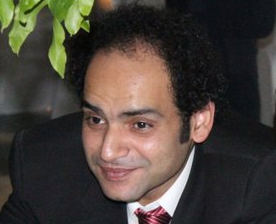By Oxford Business Group
The companies listed on the Saudi Stock Exchange, or Tadawul, have a joint value of some $320 billion. However, unlike most of the bourses operated by its neighbours, Saudi Arabia’s stock market is only now cautiously opening up to direct foreign trading.
Currently, foreign investors have limited avenues by which they can enter the Saudi market, mainly through either exchange traded funds (ETFs) or indirect ownership. However, these restrictions could be set to change under proposals from senior officials in late October.
On October 26, Abdulrahman Al-Tuwaijri, chairman of the Saudi Arabia Capital Market Authority (CMA) – the body tasked with regulating financial markets – said there were plans being developed to open up the national stock exchange to a wider clientele.
While Saudi Arabia wanted to see broader integration of its markets with those operating around the world, and develop a greater inward flow of capital into the economy, Al-Tuwaijri told the Reuters news agency that the main driving force for any reforms was strengthening the Tadawul, rather than pushing up the index.
“In terms of liquidity, it is not really the…incentive for us but what we need is more research, more technology, more analysis of our market, more stability of our market and that comes with institutional foreign investors,” he said.
In particular, it was stability that was an issue, said Al-Tuwaijri, with lingering concerns over the rapid inflow, and equally rapid exit of hot money from the market. In 2008, hot money flowed into dollar-pegged markets as speculators hoped to benefit from a depegging of local currencies.
Other reforms that the CMA is considering include allowing foreigners to take part in Islamic issues or participate on the secondary bond market, though this, along with a suggestion that short selling be permitted, was probably a long way off, Al-Tuwaijri said.
The CEO of the Saudi Stock Exchange, Abdullah Al Suweilmy, confirmed that the exchange is looking at ways of opening to allow foreigners to hold shares, telling the Bloomberg news agency in late October that the bourse was working with the CMA to strengthen accountability and reform ownership requirements.
“We are working with listed companies to make disclosures available in English so information will be available to international investors,” Al-Suweilmy said.
Both the Tadawul and the CMA have been pushing listed firms to be more accountable, a campaign that has seen the regulator recently impose fines on some half a dozen companies over breaches of market regulations, such as prompt disclosure of full details of earnings or reporting changes to management structure as required.
The penalties are seen as proof that the market regulator is committed to reinforcing best practices and making transparency even clearer.
While welcoming the CMA’s efforts to increase accountability, few expect that any further reform will be enacted without a substantial consultation period. One of the main concerns is the flow of hot money, said Hesham Abu-Jamee, the chief investment officer of retail fund firm Bakheet.
“They [the CMA] worry about speculation,” he said in an interview with Reuters on October 20. “They will wait with anything until global markets have further stabilized.”
According to Shailesh Dash, the founder and CEO of Dubai-based Al Masah Capital, Saudi Arabia and other countries in the region need to build secondary bond trading platforms to make the market accessible to regional retail investors.
“There is a significant need to develop the secondary bond market in the Middle East North Africa region, which is characterized by low trading activity on regional exchanges such as Tadawul,” Dash said on October 27. “In addition, an improved regulatory structure in the form of a developed of secondary bond market would lead to greater transparency.”
While the proposed reforms may well take time, it is expected that the CMA will push through the changes as part of its program to broaden the base of the Tadawul’s activities and deepen the pool of potential investors. Central to this, though, will be the regulator’s understandable concern to moderate so called hot money inflows as it tries to maintain the balance between an open door policy whilst at the same time protecting domestic investors’ interests.

